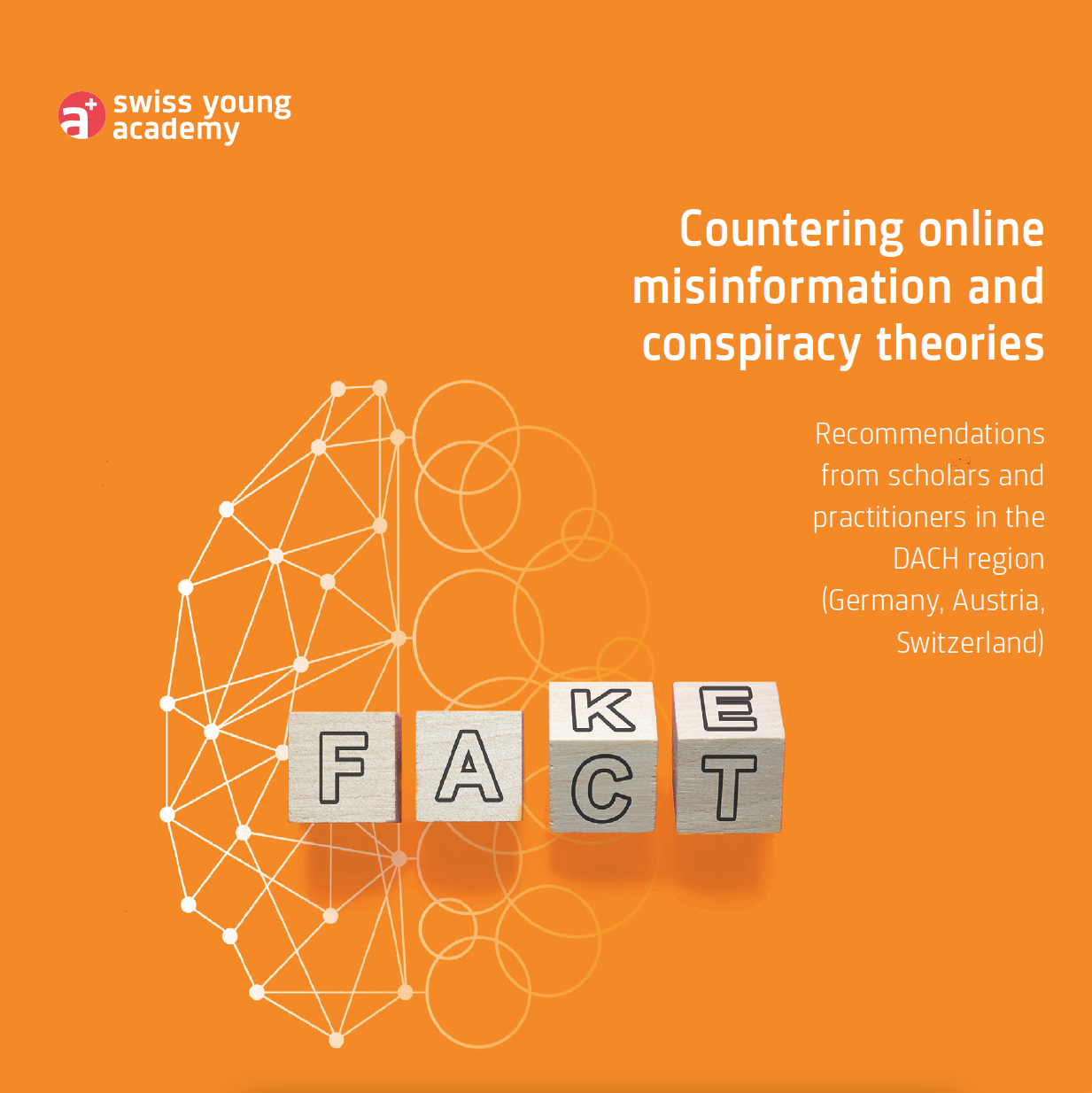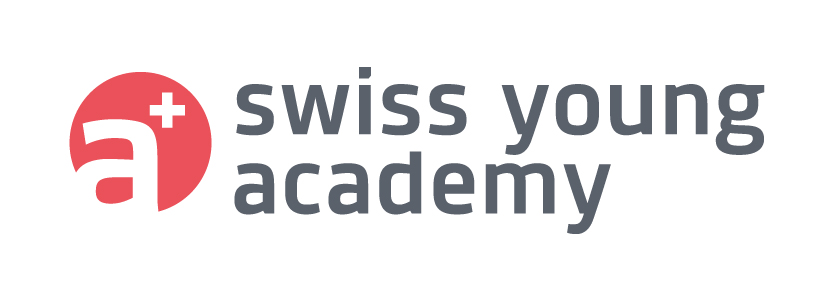Networking science.
How to counter online misinformation and conspiracy theories: Recommendations from scholars and practitioners
Bern, 15 February 2024
Press release
While the practices of denying and distorting scientific findings and of labelling them conspiracy theories spread like wildfire during the COVID-19 pandemic, the influence of misinformation and conspiracy theories has long outlasted the pandemic. And in fact, technology-driven fake news was ranked the current number one global risk in a recent survey of business leaders and risk experts conducted by the World Economic Forum (The Global Risks Report 2024).
New study identifies current challenges and provides recommendations for addressing them
A deep understanding of the dynamics of misinformation is crucial for developing and implementing effective strategies to counter its spread. This is why researchers from the Swiss Young Academy (Sabrina Heike Kessler, Anna Jobin, Fanny Georgi) and the University of Zurich (Mike Schäfer, Daniela Mahl) conducted a study in which they surveyed 47 scholars and practitioners from 13 countries and compiled recommendations on how to address the challenges associated with misinformation and conspiracy theories.
“Insufficient digital media and information literacy within different social groups, a shortage of resources in science journalism, and both regulatory and scientific gaps are the most important challenges we identified”, says Sabrina Heike Kessler, the project’s speaker. “We also summarised the experts’ recommendations on how to address these challenges from a perspective that considers society as a whole.”
According to the experts surveyed, promoting digital media and information literacy – using strategies targeted at specific audiences – contributes significantly to developing a society that is better able to recognise misinformation and more effectively curb its spread. Furthermore, in order to strengthen the public’s trust in the media, the experts recommend promoting professional (science) journalism and independent fact-checking. Given the currently insufficient self-regulation by digital platforms, the experts also propose that policymakers create legal frameworks to increase transparency and that they evaluate the potential establishment of a civil society platform council – comprised of selected users and experts – for the purpose of advising and monitoring digital platforms.
A call for more science communication
The experts also call upon academia to act. According to those surveyed, the transfer of scientific knowledge to society via appropriate communication channels should be improved so that a broader audience can have access to complex scientific findings communicated using language that is easy to understand. This form of science communication can be undertaken by not only the communication departments at institutes of higher education and at research institutes but also by researchers themselves. In order to promote the more active engagement of researchers in science communication, the experts recommend offering them professional communication training as well incentivising such activities. Moreover, specialised institutions must exist that are responsive to this issue and to which researchers can turn when they are confronted with hostile behaviour in response to their efforts to counter misinformation and conspiracy theories.
The experts surveyed in the study maintain that many of these challenges will remain relevant or become even more pressing in the years to come. And ultimately, the study finds that curbing false or misleading content and conspiracy theories on digital platforms requires both individual measures and collaboration between a diverse coalition of stakeholders and social groups.
Karin Spycher
Head of Swiss Young Academy
House of Academies
Laupenstrasse 7
P.O. Box
3001 Bern
Switzerland

